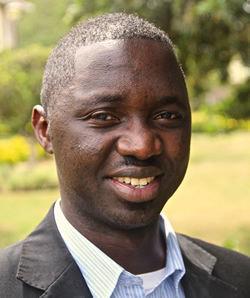António Guterres emphasizes that multilateralism is the answer to contemporary challenges on global forced displacement and migration. Yet states consider migration as an (inter-) governmental issue. Accordingly, there is neither a global governance system, nor an appropriate international normative framework on migration. Moreover, the recently launched Nansen Initiative has shown timid results. António Guterres is right: Given the transnational implications, the complexities, and the humanitarian stakes of migration, multilateralism is the answer. But not now - not yet.
Advocates of multilateralism often neglect the fact that establishing multilateral institutions contains risks. If states are not willing to commit themselves to potentially costly international norms and/or organizations, ineffective institutions are the inevitable result. Thereby, problems are not solved, resources are wasted, the landscape of global institutions becomes more complex, and the belief in multilateralism is undermined. But most importantly, because international institutions hardly evolve after their creation, the one shot the international community has to create an issue-specific institution is given away.
If we are serious about not just “doing something,” but “doing the right thing,” we need to acknowledge that timing matters. In general, shocks to the system bring changes. António Guterres mentioned that World War II set the stage for groundbreaking innovations, such as the United Nations, the Universal Declaration of Human Rights, and the Bretton Woods system. Such a shock is happening right now with the current migration crisis. Notably European states cannot pretend any more that they are not concerned by the humanitarian disaster in the MENA region. In fact, the unprecedented flow of people is putting the European Union and Europe’s values to a test. Moreover, radical reactions such as the Pegida movement in Germany illustrate the potential for social unrest. It would be a mistake for European states to engage in multilateral exercises before managing the challenges at the domestic level, and before having consolidated their policies. No state can negotiate out of strength if the home front is divided.
Effective international institutions also require the commitment of the states that matter most for solving the underlying problem. The current migration crisis has expanded the range of affected states beyond the MENA region. European states and the United States - which is confronted with regional instability and pro-active counterforces such as Russia and Iran - now have stakes in the challenge on (forced) migration. The more the great powers realize that they are also in need of effective multilateral solutions, the more they will seriously engage in institution building. With its unrivalled power, global engagement, expertise, and credibility, the United States has the potential to play the leading role. But currently, the United States has other priorities, such as fighting terrorism, strengthening its allies in the MENA region, and containing aggressive and rising powers. No super power can seriously engage in and commit to multilateralism when facing so many crises with uncertain outcomes. After the crises, however, power structures - notably in the MENA region - will be clearer, and effective multilateral solutions will be easier to identify.
Consequently, the time for multilateral solutions to the challenges on (forced) migration is not yet ripe. The current migration crisis has raised awareness among the most powerful states and their publics. Today’s problems need to be fixed by existing coordination mechanisms and ad hoc activities. Once the crisis is managed, states can assess the costs and benefits of multilateral engagement, and subsequently consolidate their preferences. Then, they can engage in institutional design. Indeed, there is a fine line between counterproductive activism and timely leadership. The United States, as the most powerful state and with a tradition in liberal institutionalism, has the potential to get it right. Our discussion at Georgetown University is a first step in the right direction.
Tobias Vestner is a MSFS student and a Global Futures Fellow.
Other Responses
Alex Rohlwing | November 23, 2015
António Guterres | November 23, 2015
Emmanuel Foro | November 23, 2015
Lina Zdruli | November 23, 2015
Patrice Ndayisenga | November 23, 2015
Patrick Griffith and Jennifer Podkul | November 23, 2015
Susan Martin | November 23, 2015







